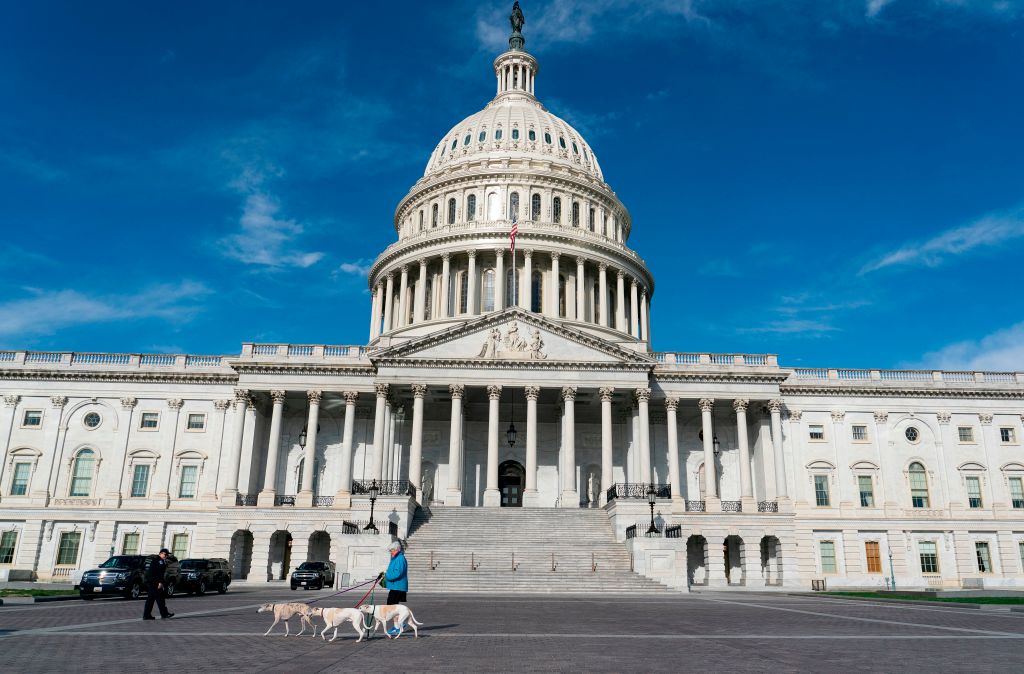Scammers Are Using The Stimulus Checks To Con People Out Of Money

Source: ALEX EDELMAN / Getty
Now that the $2 trillion stimulus package was signed into law on Friday, many Americans will be expecting the individual checks promised in the bill. Unfortunately, some scammers are using people’s need for money as a way to steal.
According to CNN, multiple sources, such as the Federal Bureau of Investigation and various state attorneys general are warning against phone calls, texts, emails or websites that ask for personal or financial information in order to receive the $1,200 federal check for individuals.
“If someone claims to be from the government with a check for you, it may be a phishing scam that is illegally trying to obtain your bank account or other personal information,” said New York Attorney General Letitia James. “Do not pay anyone who promises that they can expedite or obtain a payment or a loan for you. If you are eligible for relief, you will not need to make any up-front payment or pay any fee to receive a stimulus payment.”
Many Americans will receive the $1,200 per person in the next few weeks, as part of the $2 trillion stimulus package that was signed by Donald Trump after passing Congress. The package is meant to alleviate some of the financial and economic burdens caused by the coronavirus pandemic.
Parents will receive up to $500 in additional money for each kid under age 17. The payments will start to phase out for individuals with an adjusted gross income of more than $75,000 with the amount paid being reduced by $5 for every additional $100 of adjusted gross income. People making over $99,000 will not receive a check. When it comes to couples, the income thresholds are doubled. According to a Tax Policy Center estimate, nearly 90% of Americans are eligible for a full or partial check.
“Our expectation is within three weeks we will have direct payments out where we have depository information,” said Treasury Secretary Steven Mnuchin on Thursday. “We’re looking to get a lot more information and we have procedures to do that.”
Tax experts said the checks could take longer than three weeks to be sent out in order for the Internal Revenue Service to process payments. People who file for their tax returns electronically and give the IRS their bank information will most likely get their payments earlier via direct deposit. In 2018, about 88% of individual returns were filed electronically. Sending out paper checks might be a longer process.
One group that won’t be able to receive checks at all are undocumented immigrants. According to CPA Practice Advisor, taxpayers must have a Social Security number to receive a check. Folks who filed their taxes using an Individual Taxpayer Identification Number will not receive a check. This excludes nearly 4.3 million adults and 3.5 million children, according to the Institute of Taxation and Economic Policy. Such a caveat caused major condemnation from people like Rep. Ayanna Pressley. Exempting undocumented immigrants could be devastating to their families, many of whom are Black, and could have a negative impact on the economy.
For those eligible for a check, the IRS states on its website that no sign-up is required and there is no need to call. The agency will post more information when it’s available at www.irs.gov/coronavirus. The stimulus law says that recipients will receive a notice by mail no later than 15 days after the payment was distributed, which will specify the amount of money sent, the way by which it was delivered and a phone number to dial at the IRS if the funds failed to arrive.
SEE ALSO:
7-Year-Old Creates Care Packages For Senior Citizens Amid Coronavirus Pandemic
NBA Player Kyrie Irving Donates $323,000 To Combat Food Insecurity Amid Coronavirus Pandemic
[ione_media_gallery id=”3916439″ overlay=”true”]








